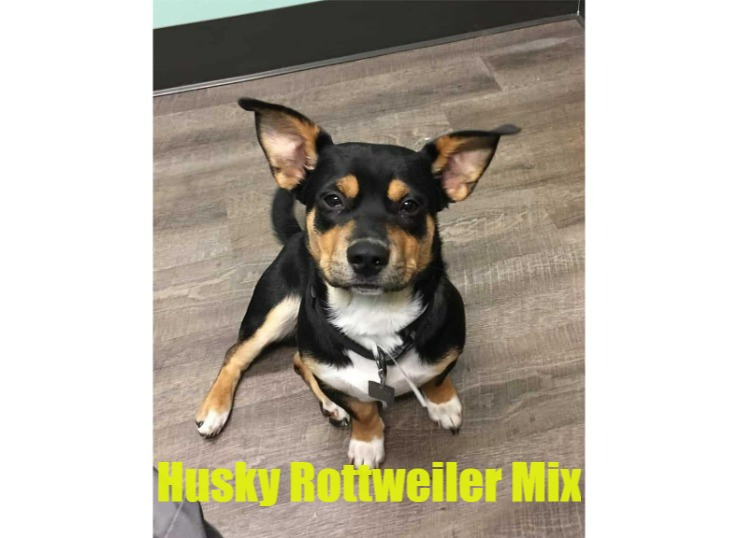Can Rottweilers Eat Cucumbers? (New Guide in 2024)

Cucumbers are the best addition to our salads as well as sandwiches. You can enjoy cucumbers in several ways as simple and low-calorie snacks. However, can Rottweilers eat cucumbers? Yes, they can eat cucumbers. Carry on reading this guide to know more about if dogs can eat cucumbers.
Table of Contents
Can Rottweilers eat cucumbers? Answered and explained.
Yes, all dogs, including Rottweilers, can consume cucumbers in control. These vegetables contain about 96% water, some minerals, as well as vitamins. However, be careful while offering cucumber to your dog because high amounts of this vegetable can cause digestive complications.
Besides, as with every human food, ensure you ask your doctor if your pooch can eat a cucumber before you feed this food to it. Below, I will clarify how to safely provide cucumber to your Rottweiler.
Are cucumbers good for Rottweilers?
Yes, cucumbers are an excellent treat for Rottweilers. As I have said, cucumbers are rich in water content and have a low-calorie rate, which means cucumbers are a perfect substitute to further human foods that are rich in fat as well as sugar.
1. Cucumbers have fewer calories.
It’s well-off that dogs can consume cucumbers, as they’re among some human food treats that have fewer calories. Thus, this is good news for weighty and diabetic dogs. Besides, However, if you want to treat your puppy, it’s always good to deliberate high-quality dog treats that are prepared mainly for canines over foods considered for humans.
2. Cucumbers are rich in vitamins.
Vitamins K, B, and C are some of the nutrients in each slice of cucumber. But, this isn’t undoubtedly significant for your puppy because they must be able to obtain all the essential nutrients they require from whole, specially-made dog food without extra supplementation.
Are Cucumbers Safe for Rottweilers?
Cucumbers are safe for Rottweilers to eat and provide a low-calorie snack that several dogs love. Cucumbers only have around 8 calories for each one-half cup of slices, rather than the 40 calories in one medium biscuit, and have less sodium as well as fat.
There are two possible dangers of feeding cucumbers to dogs: choking as wee as overeating. Overeating cucumbers can cause gastrointestinal (GI) upset in canines, mainly if your dog has not eaten before. To prevent your pooch from choking, always cut items to a convenient size, particularly for small canines or for puppies that wolf down their meals. Feeding a whole cucumber is not suitable.
How to feed cucumber to Rottweilers?
If your expert vet has declared yes to the question ‘can dogs eat cucumber,’ here is how to give this food to your pooch safely:
- Keep in mind to wash cucumber before feeding it to your canine
- Eliminate the peel as well as seeds
- Cut the cucumber into small fragments
- Only give plain cucumber to your dog, and do not add any flavor or additional human food constituents
- Give cucumber to your pooch in small amounts, giving them, some slices as a dog treat on the odd event
FAQs
Q: Can Rottweilers eat cucumbers having skin?
The majority of the nutrition and advantages are in the peel. Providing you purchase organic; the peel of cucumber is perfectly safe for your canine to consume.
Q: How many cucumbers can a Rottweilers eat?
A large segment of cucumber can be an unpleasant threat. The tough skin can also be problematic for them to digest. And, feed your Rottweiler only 1-2 parts of cucumber daily as a treat. The extra amount of any food can upset your Rottweiler’s stomach due to the high content of fiber.
Q: Can cucumber cause diarrhea in Rottweilers?
The high levels of water and fiber in cucumbers can lead to gastrointestinal problems such as gas or diarrhea if your puppy overeats. If your pooch grasps a sensitive stomach, you can get tummy pain when your pooch first eats cucumber too much.
Conclusion: Can Rottweilers eat cucumbers?
As always, each time you’re feeding your pooch a new food, begin by offering them a small amount (such as giving them one bite-sized segment) and remember their response to this. If you notice some unusual symptoms, for example, vomiting, panting, or lethargy, ensure you call your veterinarian for help as well as advice.




![Top 10 Best Dogs Toys Australia in 2022 [Latest Guide] 6 Best-dog-toys-Australia](https://animalpedias.net/wp-content/uploads/2021/10/Best-dog-toys-Australia-768x475.jpg)

